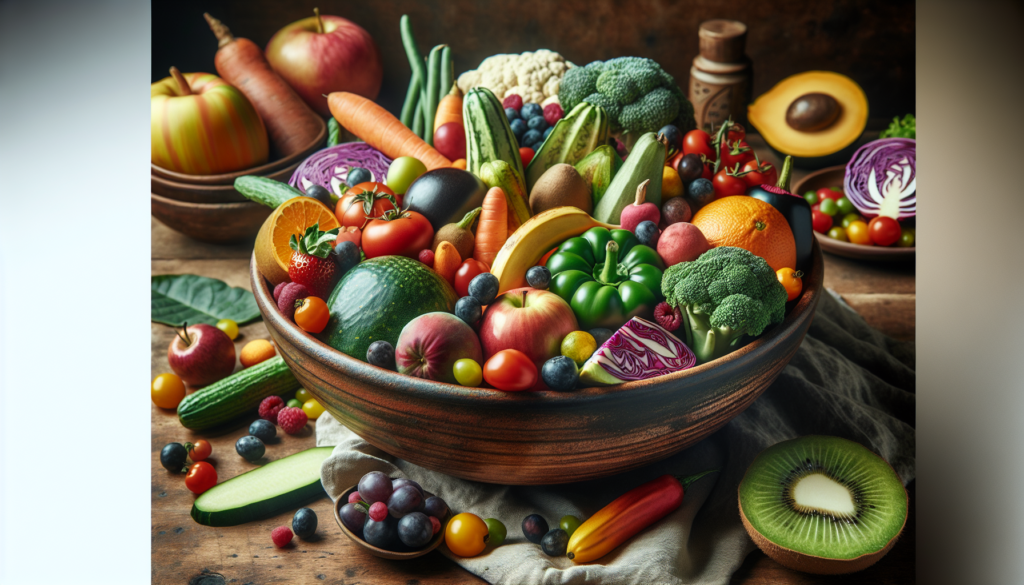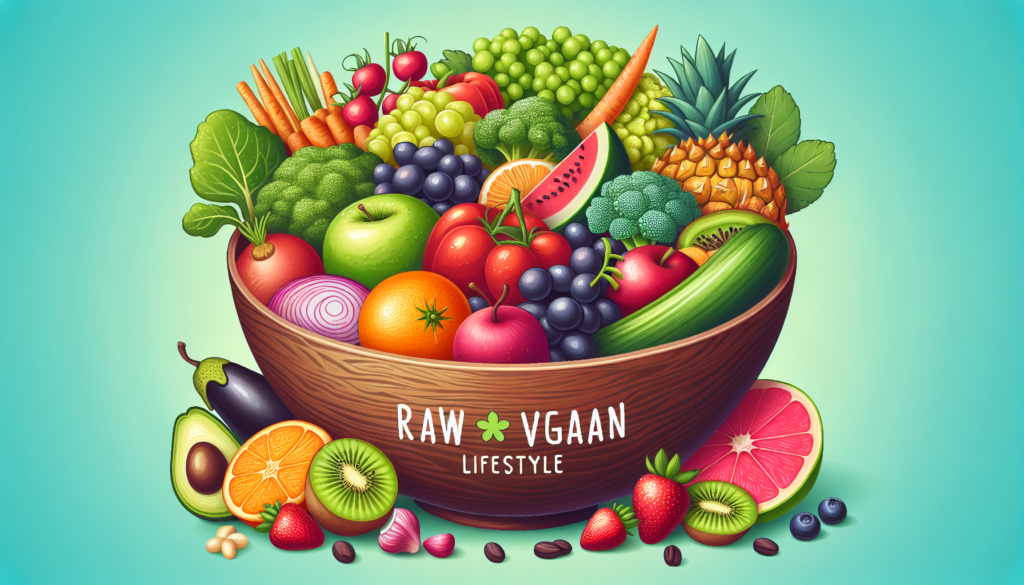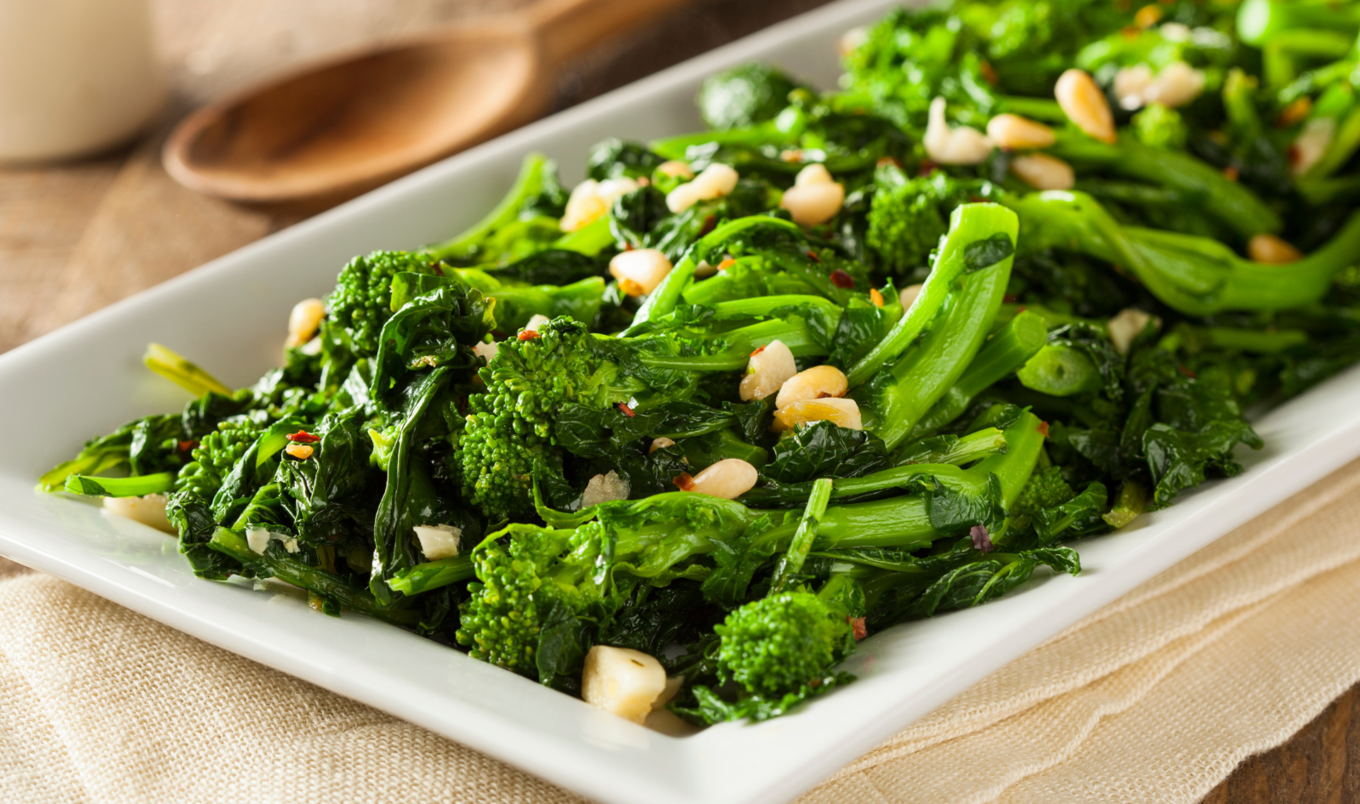So, you’ve decided to embark on a new journey towards a raw vegan lifestyle. Congratulations! In this article, we will guide you through the essential steps and provide valuable tips to help you transition smoothly into this health-conscious way of eating. From understanding the principles of raw veganism to incorporating nutrient-rich foods into your diet, get ready to explore a world of vibrant flavors and nourishing goodness that will leave you feeling energized and revitalized. Are you ready to take the first steps towards a raw vegan lifestyle? Let’s get started!

Table of Contents
Choosing a Raw Vegan Lifestyle
Understanding the Basics of Raw Veganism
If you’re considering a raw vegan lifestyle, it’s important to understand the basic principles behind it. Raw veganism is a plant-based diet that focuses on consuming unprocessed and uncooked foods. This means that you’ll be enjoying a wide variety of fruits, vegetables, nuts, seeds, and sprouted grains while excluding any animal products and even cooked foods. By following a raw vegan diet, you’re nourishing your body with natural and nutrient-rich foods that are believed to promote optimal health and vitality.
Exploring the Benefits of a Raw Vegan Lifestyle
There are numerous benefits of adopting a raw vegan lifestyle. Firstly, raw vegan foods are rich in enzymes, which are essential for proper digestion and nutrient absorption. Additionally, a raw vegan diet is typically low in saturated fats and high in fiber, which may lead to weight loss and improved heart health. The abundance of fresh fruits and vegetables in a raw vegan diet can also contribute to glowing skin, increased energy levels, and enhanced mental clarity. Furthermore, this lifestyle promotes a more sustainable and environmentally friendly approach to eating, reducing the carbon footprint associated with animal farming.
Assessing Your Motivation for Going Raw Vegan
Before embarking on a raw vegan lifestyle, it’s important to assess your motivation behind this decision. Are you looking to improve your overall health and well-being? Or perhaps you’re seeking a more ethical and sustainable way of eating. Understanding your personal reasons for going raw vegan can help you stay motivated and committed to this lifestyle choice. It’s also helpful to set clear goals and expectations for yourself, whether it’s weight loss, increased energy, or simply exploring new culinary experiences.
Transitioning to a Raw Vegan Diet
Setting Realistic Goals
When transitioning to a raw vegan diet, it’s crucial to set realistic goals for yourself. Instead of completely eliminating all cooked and processed foods overnight, consider taking a gradual approach. This might involve starting by incorporating more raw fruits and vegetables into your meals and gradually reducing your consumption of cooked foods. By setting achievable goals, you’ll be more likely to stick with the raw vegan lifestyle in the long run.
Gradual Transition vs. Cold Turkey Approach
There are two main approaches to transitioning to a raw vegan diet: gradual or cold turkey. Both methods have their advantages and drawbacks, so it’s essential to choose the approach that best suits your personality and lifestyle. Gradual transition allows for a smoother adjustment period, giving your body time to adapt to the changes. On the other hand, the cold turkey approach provides a more immediate shift, eliminating any potential temptations and helping you fully commit to the raw vegan lifestyle from the start.
Stocking Your Pantry with Raw Vegan Staples
To successfully transition to a raw vegan diet, it’s important to stock your pantry with raw vegan staples. This includes a variety of fresh fruits and vegetables, nuts and seeds, as well as sprouted grains and legumes. It’s also helpful to have kitchen tools such as a high-speed blender, food processor, and dehydrator to expand your culinary options. By having these essentials on hand, you’ll be well-prepared to create delicious and nutritious raw vegan meals.
Meal Planning and Preparation
Meal planning and preparation are key components of a successful raw vegan lifestyle. Start by creating a weekly meal plan that incorporates a variety of fruits, vegetables, nuts, and seeds. This will ensure that you’re getting a wide range of nutrients and flavors in your diet. Additionally, dedicate some time each week to prepare meals and snacks in advance. This can include washing and chopping fruits and vegetables, soaking and sprouting nuts and seeds, and making homemade dips and dressings. By being organized and proactive, you’ll make it easier to stick to your raw vegan journey.
Understanding Nutritional Requirements
Getting Essential Vitamins and Minerals
As with any diet, it’s important to ensure you’re meeting your nutritional requirements on a raw vegan lifestyle. While fruits and vegetables are rich in vitamins and minerals, certain nutrients may require additional attention. For example, Vitamin B12, which is primarily found in animal products, may need to be supplemented through fortified foods or supplements. Additionally, iron, calcium, and zinc can be obtained from plant-based sources such as dark leafy greens, legumes, and nuts. Educate yourself on the nutritional content of various raw vegan foods and consider consulting a registered dietitian to ensure you’re meeting your specific needs.
Ensuring Sufficient Protein Intake
One concern often raised about a raw vegan diet is the potential for inadequate protein intake. However, by incorporating a variety of plant-based protein sources, you can easily meet your protein needs. Foods such as hemp seeds, chia seeds, spirulina, and quinoa are excellent sources of protein. Additionally, sprouting grains, seeds, and legumes can increase their protein content. By carefully planning your meals to include a balance of protein-rich foods, you can ensure you’re getting sufficient protein on a raw vegan diet.
Importance of Omega-3 Fatty Acids
Omega-3 fatty acids, particularly EPA and DHA, are essential for brain health and reducing inflammation. While most commonly found in fish, you can still obtain omega-3s on a raw vegan diet. Flaxseeds, chia seeds, and walnuts are excellent plant-based sources of omega-3 fatty acids. It’s important to note that these plant-based sources provide ALA, which the body then converts to EPA and DHA. If you’re concerned about optimal omega-3 levels, you may consider adding algae-based supplements or omega-3 fortified foods to your diet.
Avoiding Nutrient Deficiencies
When following a raw vegan lifestyle, there is a potential risk of certain nutrient deficiencies if the diet is not properly balanced. Vitamin D, iodine, and long-chain fatty acids are among the nutrients that may require attention. It’s important to include fortified foods or supplements to ensure you’re meeting your needs. Regularly monitoring your nutrient levels through blood tests and seeking professional guidance from a healthcare practitioner or registered dietitian can help you identify and address any potential deficiencies.
Exploring Raw Vegan Food Options
Embracing Fresh Fruits and Vegetables
One of the most exciting aspects of a raw vegan lifestyle is the abundance of fresh fruits and vegetables available to you. Embrace the vibrant colors, flavors, and textures of a variety of fruits and vegetables. Incorporate seasonal produce into your meals to enjoy the freshest and most nutrient-dense options. From succulent berries to crunchy greens, the possibilities are endless.
Incorporating Raw Nuts and Seeds
Raw nuts and seeds are a wonderful source of healthy fats, protein, and essential nutrients on a raw vegan diet. Almonds, cashews, walnuts, sunflower seeds, and pumpkin seeds are just a few examples of the many delicious options available. These can be enjoyed as a snack, added to smoothies, or used as a topping for salads and desserts. Soak and sprout your nuts and seeds to enhance their nutritional value and improve digestibility.
Exploring Raw Vegan Fermented Foods
Fermented foods are a great way to introduce probiotics and beneficial bacteria into your gut on a raw vegan diet. Raw sauerkraut, kimchi, coconut kefir, and fermented nut cheeses are popular choices. These foods not only add depth of flavor to your meals but also support a healthy gut microbiome, aiding in digestion and nutrient absorption. Experiment with homemade fermented creations or explore the array of raw vegan fermented products available in stores.
Nutritional Superfoods for Optimal Health
Incorporating nutritional superfoods can elevate your raw vegan diet to new heights. These superfoods are rich in antioxidants, vitamins, minerals, and phytonutrients. Some examples include spirulina, chlorella, maca powder, cacao, and goji berries. These foods not only provide a nutritional boost but also add unique flavors and textures to your meals. Experiment with adding a teaspoon or two of superfoods to your smoothies, desserts, or homemade energy bars for an extra nutrient punch.

Finding Raw Vegan Recipe Inspiration
Utilizing Raw Food Blogs and Websites
Raw food blogs and websites are a treasure trove of inspiration and recipes for your raw vegan journey. These online resources offer a wealth of information, including tips for meal planning, raw food preparation techniques, and creative recipe ideas. Check out popular raw food bloggers and bookmark your favorite websites to keep up with the latest culinary creations in the raw vegan community.
Trying Out Raw Vegan Cookbooks
Raw vegan cookbooks are an excellent investment if you prefer having physical copies of recipes. These cookbooks often provide a wide variety of recipes, from simple and beginner-friendly options to more complex gourmet creations. Explore the different styles and flavors offered in raw vegan cookbooks, and let them guide you on your culinary adventures.
Experimenting with Raw Vegan Recipe Apps
If you prefer the convenience of using your smartphone or tablet, raw vegan recipe apps are a fantastic way to explore new dishes. These apps offer a vast selection of recipes, often including detailed instructions, shopping lists, and even the ability to create your own virtual cookbook. Whether you’re looking for quick and easy meals or more elaborate gourmet recipes, raw vegan recipe apps have got you covered.
Joining Raw Vegan Recipe Communities
Being part of a raw vegan recipe community can be incredibly motivating and enriching. Join online forums or social media groups dedicated to raw vegan recipes. These communities provide a platform for sharing experiences, discovering new recipes, and receiving support from like-minded individuals. Don’t hesitate to ask questions, contribute your own recipes, and connect with fellow raw vegans who can guide and inspire you on your journey.
Dealing with Challenges and Obstacles
Overcoming Social and Peer Pressure
When adopting a raw vegan lifestyle, you may encounter social and peer pressure that challenges your commitment. Friends and family might not understand or support your dietary choices, leading to temptation or criticism. It’s crucial to stay strong in your conviction and communicate your reasons for choosing this path. Educate others about the benefits of a raw vegan lifestyle, and seek out like-minded individuals who can provide encouragement and advice. Remember, your health and well-being are the ultimate priorities.
Managing Cravings and Temptations
Cravings and temptations are natural aspects of any dietary change. When transitioning to a raw vegan diet, you may find yourself longing for familiar cooked or processed foods. To overcome these cravings, focus on incorporating a variety of flavors and textures into your meals. Experiment with different raw vegan recipes that mimic the tastes and textures you crave, such as raw pizza or zucchini pasta. Additionally, make sure you’re eating enough calories and nutrients to ensure your body feels satisfied and nourished.
Eating Raw Vegan on a Budget
Contrary to popular belief, adopting a raw vegan lifestyle doesn’t have to break the bank. While some raw vegan specialty products can be pricey, focusing on whole, unprocessed foods can be cost-effective. Buy seasonal fruits and vegetables, shop in bulk for nuts and seeds, and consider growing your own sprouts and microgreens. Meal planning, batch cooking, and making use of leftovers can also stretch your budget. With a bit of creativity and resourcefulness, you can enjoy a raw vegan lifestyle without draining your wallet.
Navigating Restaurants and Travel
Eating out at restaurants or traveling while on a raw vegan diet can present unique challenges. However, with a little preparation, it’s possible to navigate these situations successfully. Prior to dining out, research options for raw vegan-friendly restaurants or explore the menu in advance to identify suitable dishes. If traveling, bring along portable raw vegan snacks and reach out to accommodations to inquire about access to a kitchen or local markets. Flexibility and communication are key when facing these challenges, allowing you to enjoy raw vegan options wherever you go.
Maintaining a Balanced Raw Vegan Lifestyle
Monitoring Macronutrient Balance
To maintain a balanced raw vegan lifestyle, it’s important to monitor your macronutrient balance. This involves ensuring you’re getting an adequate proportion of carbohydrates, proteins, and fats. Monitor your intake of fruits and vegetables for carbohydrates, include protein-rich foods like nuts, seeds, and legumes, and incorporate healthy fats from sources such as avocados, coconuts, and cold-pressed oils. Strive for a varied and well-rounded diet to meet your body’s needs.
Incorporating Physical Activity
Physical activity is an essential component of overall health and well-being, regardless of your dietary choices. Incorporate regular exercise into your routine to complement your raw vegan lifestyle. Choose activities that you enjoy, whether it’s yoga, hiking, swimming, or dancing. Engaging in physical activity not only keeps your body fit and strong but also enhances your energy levels, mood, and overall vitality.
Prioritizing Sleep and Rest
Quality sleep and sufficient rest are crucial for maintaining a balanced raw vegan lifestyle. Aim for seven to eight hours of uninterrupted sleep each night to support your body’s natural healing and rejuvenation processes. Establish a calming bedtime routine and create a sleep-friendly environment. Additionally, incorporate rest and relaxation into your daily routine, whether it’s through meditation, stretching, or enjoying a peaceful hobby. By prioritizing sleep and rest, you’ll enhance your overall well-being and optimize your raw vegan journey.
Stress Management and Self-Care
Managing stress and practicing self-care are integral to maintaining a balanced raw vegan lifestyle. Explore various stress management techniques such as mindfulness, deep breathing exercises, or journaling. Engage in activities that bring you joy and relaxation, such as taking baths, practicing gratitude, or spending time in nature. Remember to nourish not only your body but also your mind and soul through self-care practices, ensuring a holistic approach to your raw vegan journey.
Support and Community
Finding Raw Vegan Support Groups
Connecting with others who share your passion for a raw vegan lifestyle can provide invaluable support and encouragement. Find local raw vegan support groups or meetup events in your area. These groups often host gatherings, potlucks, and workshops, giving you an opportunity to meet like-minded individuals, share recipes, and exchange tips and advice. Building a network of individuals who understand and appreciate your raw vegan journey can make a profound difference in your overall experience.
Connecting with Online Communities
If you don’t have access to local support groups, the internet offers a vast array of raw vegan online communities. Join forums, Facebook groups, or participate in online challenges and discussions. Through these platforms, you can connect with individuals worldwide who are on a similar path, sharing experiences, and providing support. Online communities are also a great source of inspiration for recipes, nutrition tips, and lifestyle recommendations.
Attending Raw Vegan Events and Meetups
Attending raw vegan events and meetups is another fantastic way to immerse yourself in the raw vegan community. These events often feature renowned speakers, cooking demonstrations, and opportunities to connect with fellow raw vegans. Whether it’s a raw food festival, workshop, or retreat, participating in such gatherings can deepen your knowledge, expand your support network, and fuel your passion for the raw vegan lifestyle.
Sharing Experiences with Family and Friends
Openly sharing your experiences with family and friends can help foster understanding and support for your raw vegan lifestyle. Invite loved ones to join you in trying raw vegan meals or snacks, and encourage open conversations about your journey. Share the benefits you’ve experienced, such as increased energy and improved well-being. By educating and involving those closest to you, you can create a supportive environment that enhances your raw vegan success.
Addressing Common Concerns
Evaluating Sustainability and Environmental Impact
When embarking on a raw vegan lifestyle, it’s natural to consider the sustainability and environmental impact of your food choices. Raw veganism is often seen as a more sustainable option due to its reduced carbon footprint associated with animal agriculture. By consuming mainly plant-based foods, you can contribute to the conservation of natural resources, reduction of greenhouse gas emissions, and preservation of biodiversity. However, it’s important to choose locally sourced, organic produce whenever possible and be mindful of packaging waste to further minimize your environmental impact.
Considering Food Safety and Hygiene
Ensuring food safety and maintaining good hygiene practices are essential elements of a raw vegan lifestyle. Since raw foods are not cooked, there is a higher risk of foodborne illnesses. It’s important to handle raw vegan ingredients with care, such as thoroughly washing fruits and vegetables before consumption and properly storing perishable items. Additionally, practicing good kitchen hygiene, including regularly cleaning cutting boards, utensils, and food preparation surfaces, can help reduce the risk of bacterial contamination. Educate yourself on proper food safety practices and prioritize hygiene in your kitchen.
Handling Detoxification and Cleansing Reactions
Some individuals may experience detoxification and cleansing reactions when transitioning to a raw vegan diet. These reactions can include fatigue, headaches, skin breakouts, and digestive issues. While these symptoms are temporary and a sign that your body is eliminating toxins, it’s important to listen to your body’s needs during this time. Stay hydrated, get plenty of rest, and support your body’s detoxification processes by consuming additional fiber-rich foods and staying active. If symptoms persist or worsen, consult a healthcare professional for guidance.
Consulting with Healthcare Professionals
Before and during your raw vegan journey, it’s important to consult with healthcare professionals, especially if you have pre-existing medical conditions or unique dietary needs. A registered dietitian or nutritionist can provide personalized guidance, ensuring you’re meeting your nutritional requirements and addressing any concerns. Additionally, regular check-ups and blood tests can help monitor your overall health and detect any potential deficiencies or imbalances. Remember, healthcare professionals can offer valuable insights and support to help you thrive on your raw vegan lifestyle.
Sustaining Long-term Raw Vegan Success
Being Flexible and Adaptable
A key element of sustaining long-term raw vegan success is being flexible and adaptable. While raw veganism is a wonderful lifestyle choice, it’s important to recognize that everyone’s needs and circumstances are different. Allow yourself the freedom to make adjustments based on your individual journey. If you find that certain cooked or processed foods occasionally fit into your lifestyle without compromising your overall well-being, embrace the flexibility to include them. Strive for balance and listen to your body’s needs to sustain your raw vegan success in the long run.
Tracking Progress and Celebrating Milestones
To stay motivated and measure your progress, track your journey and celebrate milestones along the way. Keep a journal to document how you feel physically, mentally, and emotionally as you embrace the raw vegan lifestyle. Set goals and monitor your achievements, whether it’s weight loss, increased energy, or improved digestion. Celebrate your accomplishments, both big and small, to stay motivated and reinforce a positive mindset towards your raw vegan journey.
Continuing Education and Learning
Education and learning are integral components of sustaining long-term raw vegan success. Stay informed about the latest research, nutritional recommendations, and culinary techniques within the raw vegan community. Attend workshops, webinars, or conferences to expand your knowledge and understanding. Continually seek new recipes, explore different food preparation methods, and embrace the ever-evolving science of nutrition. By committing to lifelong learning, you’ll be equipped with the necessary tools and knowledge to thrive on your raw vegan journey.
Reflecting on Personal Growth
Take the time to reflect on your personal growth throughout your raw vegan journey. Embrace the lessons you’ve learned, the challenges you’ve overcome, and the transformations you’ve experienced. Journaling, meditation, or simply quiet self-reflection can help you appreciate the positive changes in your life. Embrace the emotional and spiritual growth that may accompany your raw vegan lifestyle, allowing yourself to connect with a deeper sense of self and purpose. Celebrate the person you’ve become through your commitment to a raw vegan lifestyle.
In conclusion, choosing a raw vegan lifestyle offers numerous benefits for your overall health and well-being. By understanding the basics of raw veganism and exploring the various benefits, you can make an informed decision about adopting this lifestyle. Transitioning to a raw vegan diet requires setting realistic goals, considering a gradual or cold turkey approach, and stocking your pantry with raw vegan staples. It’s essential to understand your nutritional requirements and address potential concerns to maintain a balanced raw vegan lifestyle. Exploring a variety of raw vegan food options, finding recipe inspiration, and overcoming challenges with the support of a community will contribute to long-term success. By practicing self-care, reflecting on personal growth, and being flexible, you can sustain a raw vegan lifestyle that nourishes your body, mind, and soul.






.jpg?sha=1491c255b49d3e03)